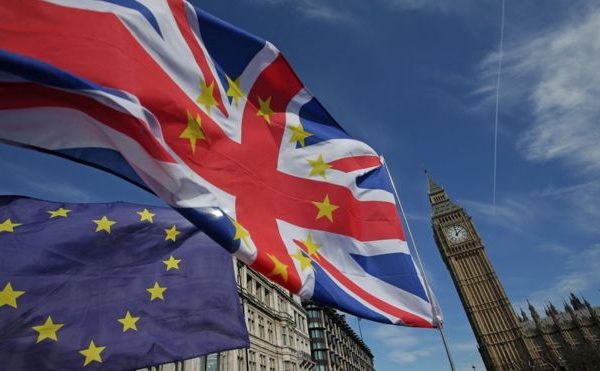Debate continues to rage in the UK over the future of Britain’s post-Brexit trade.
But in the midst of gloomy warnings on the impact of Brexit on the UK economy – including this recent report – glimmers of hope have appeared. Not, however, from the Conservative government that is, supposedly, in charge.
On March 2, Prime Minister Theresa May delivered a highly anticipated speech to outline her government’s aims as the next round of talks approach. It involved a great deal of talking tough: “the hard facts” of Brexit and her “ambitious but practical” vision. But May’s most pressing interests were apparent. She sought to placate the equally fervent pro and anti-EU wings of her party, preserve her position and assure the British financial sector of continuing privilege and protection.
At Coventry University on February 26, the opposition and Labour Party leader, Jeremy Corbyn, outlined his own party’s position. “Labour will seek to remain”, he said, “in a customs union with the EU and within the single market”. If Labour get their way, he argued, the UK could continue to trade with its closest neighbours and provide input on EU regulations. But a potential future Labour government could also implement its nationalisation and state aid plans without current EU limitations. With several smaller parties and a group of rebel Conservative MPs supporting a full customs union with the EU, Labour’s plans may ultimately carry more weight than the government’s.
Labour’s plans are among the most hopeful developments in the Brexit process so far, and are strikingly similar to the course DiEM25 co-founder Yanis Varoufakis in January urged Labour MPs to take. The Labour leadership have, like Yanis, consistently rejected calls for a re-run of the UK’s June 2016 referendum – describing such a move as undemocratic.
Instead, they agree with DiEM25 that aiming for a “Norway model” of relationship with the EU – sitting outside the EU but paying for membership to the Customs Union – is the best way to achieve both a more progressive UK and a more democratic EU. Such an arrangement not only allows the UK to benefit from EU regulations and standards, but also to move beyond them — from the protection of workers’ rights to the promotion of a more responsible financial sector. It guarantees a continued relationship with the EU, which under the direction of progressive government, will help bring about a fairer and more sustainable union.
Labour’s approach, like DiEM25’s, recognizes that the challenges facing Europe are too big for any state to meet on their own. But together we can take back control of our neighbourhoods, lives and future.
Owen is a member of the DiEM25 movement, currently based in Beirut.
Do you want to be informed of DiEM25's actions? Sign up here




